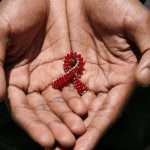Nigerian Unions, Government and Employers Strike Deal Over HIV and AIDS
The Nigeria Labour Congress (NLC), the Canadian Labour Congress (CLC) and the African Regional organization of the International Confederation of Trade Unions (ITUC-Africa) take decisive steps by bringing key stakeholders together.
Abuja, Nigeria — A series of meetings in Abuja between union, government and business representatives of Nigeria last week concluded an agreement to assess the country’s compliance with the only international standard on HIV and AIDS in the workplace, known as Recommendation No. 200 (R200) of the International Labour Organization (ILO).
The agreement has set up a tripartite process for a national assessment on HIV and AIDS, which will identify gaps in addressing the pandemic through the world of work via joint union and employer actions. An initial meeting will identify the terms of reference and scope of the assessment. Discussions are now underway with funding agencies to support the initiative.
The Nigeria Labour Congress (NLC) welcomed the agreement as one that could have lasting impact on the lives of Nigerian workers and their families. The national Ministry of Labour and Productivity has agreed to lead the process, with the involvement of the Federal Ministry of Health.
The Nigeria Labour Congress (NLC), Nigeria Employers’ Consultative Association (NECA) and the Nigerian Business Coalition against AIDS (NIBUCA) will be key players, with the ILOAIDS and UNAIDS assisting in and contributing to the process.
The process was also welcomed by the National Agency for the Control of AIDS (NACA). This agreement is seen by observers as a needed boost to the country’s Comprehensive Response Plan (PCRP) by reinvigorating private sector engagement to the ambitious targets set by President Goodluck Jonathan. R200 promotes dialogue between workplace actors and aims to address the underpinnings of HIV and AIDS, including human rights, stigma and discrimination, as well as equality and gender issues.
Last week’s discussions were initiated by the Canadian High Commission in Abuja and the Canadian Labour Congress (CLC) to draw on Canada’s experience in conducting a similar assessment. The Embassy Representatives from Norway, Sweden and the United States joined in the discussions, as each have international HIV and AIDS programs of their own.
The driving force behind last week’s meetings is a five year old partnership agreement between the CLC and ITUC-Africa and over a decade-long partnership between NLC and CLC. The partnership is now examining how the process can be extended to other countries. A concluding meeting with unions from Ghana and Togo examined this possibility, along with a representative from LO‑Norway, a Norwegian trade union centre with HIV and AIDS projects throughout the African continent.
For more information, contact:
Maureen Onyia-Ekwuazi, Senior Assistant General Secretary, Nigeria Labour Congress
Email: maureenonyia75@gmail.com
Lucien Royer, Director, International Department, Canadian Labour Congress
Email: lroyer@clc-ctc.ca





